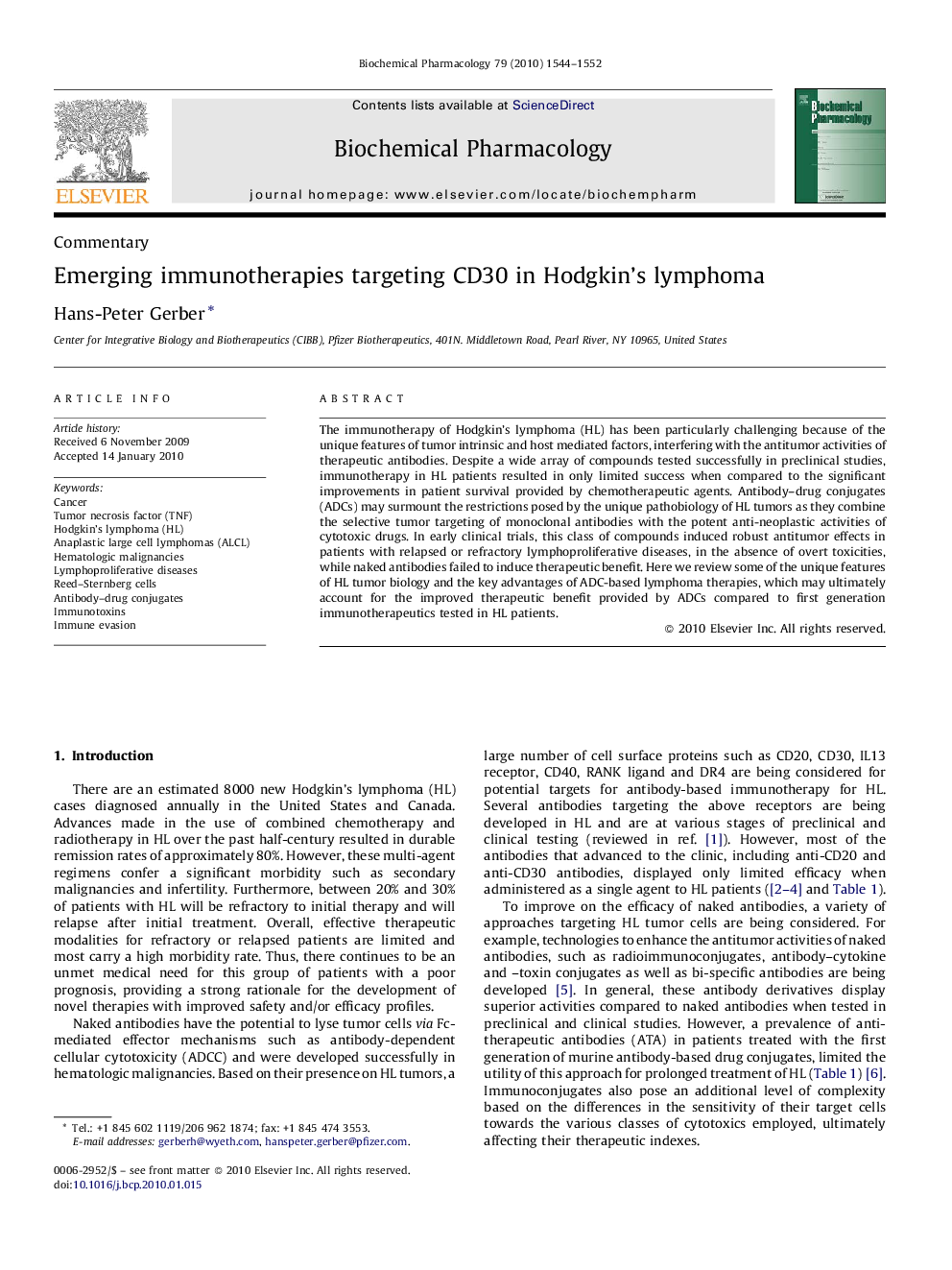| Article ID | Journal | Published Year | Pages | File Type |
|---|---|---|---|---|
| 2513318 | Biochemical Pharmacology | 2010 | 9 Pages |
The immunotherapy of Hodgkin's lymphoma (HL) has been particularly challenging because of the unique features of tumor intrinsic and host mediated factors, interfering with the antitumor activities of therapeutic antibodies. Despite a wide array of compounds tested successfully in preclinical studies, immunotherapy in HL patients resulted in only limited success when compared to the significant improvements in patient survival provided by chemotherapeutic agents. Antibody–drug conjugates (ADCs) may surmount the restrictions posed by the unique pathobiology of HL tumors as they combine the selective tumor targeting of monoclonal antibodies with the potent anti-neoplastic activities of cytotoxic drugs. In early clinical trials, this class of compounds induced robust antitumor effects in patients with relapsed or refractory lymphoproliferative diseases, in the absence of overt toxicities, while naked antibodies failed to induce therapeutic benefit. Here we review some of the unique features of HL tumor biology and the key advantages of ADC-based lymphoma therapies, which may ultimately account for the improved therapeutic benefit provided by ADCs compared to first generation immunotherapeutics tested in HL patients.
Graphical abstractComplex nature of HL.Figure optionsDownload full-size imageDownload as PowerPoint slide
